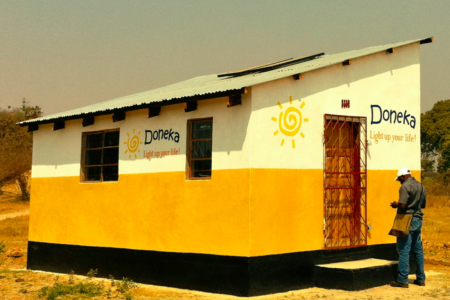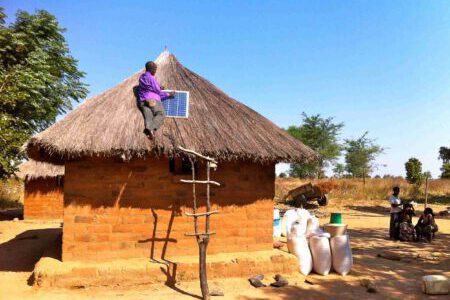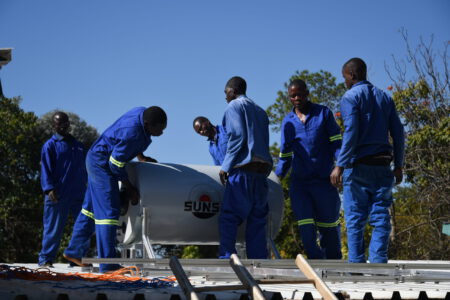Green Municipalities in Algeria: Advancing Climate-Efficient Local Services
Objective
The “Green Municipalities” project in Algeria addresses a pressing challenge: the inability of local governments to deliver services efficiently and in a climate-friendly manner. Algeria is committed to implementing international climate goals as part of the Team Europe Initiative on Climate, Energy, and Green Economy. This project, which is funded by German Federal Ministry for Economic Cooperation and Development (BMZ) and implemented by GIZ, aims to support these efforts by enhancing the energy efficiency and climate performance of municipal services. The project is implemented in cooperation with Algeria’s Ministry of Interior, Local Authorities, and Urban Planning. It seeks to improve the climate efficiency of municipal services, with a focus on reducing energy consumption.
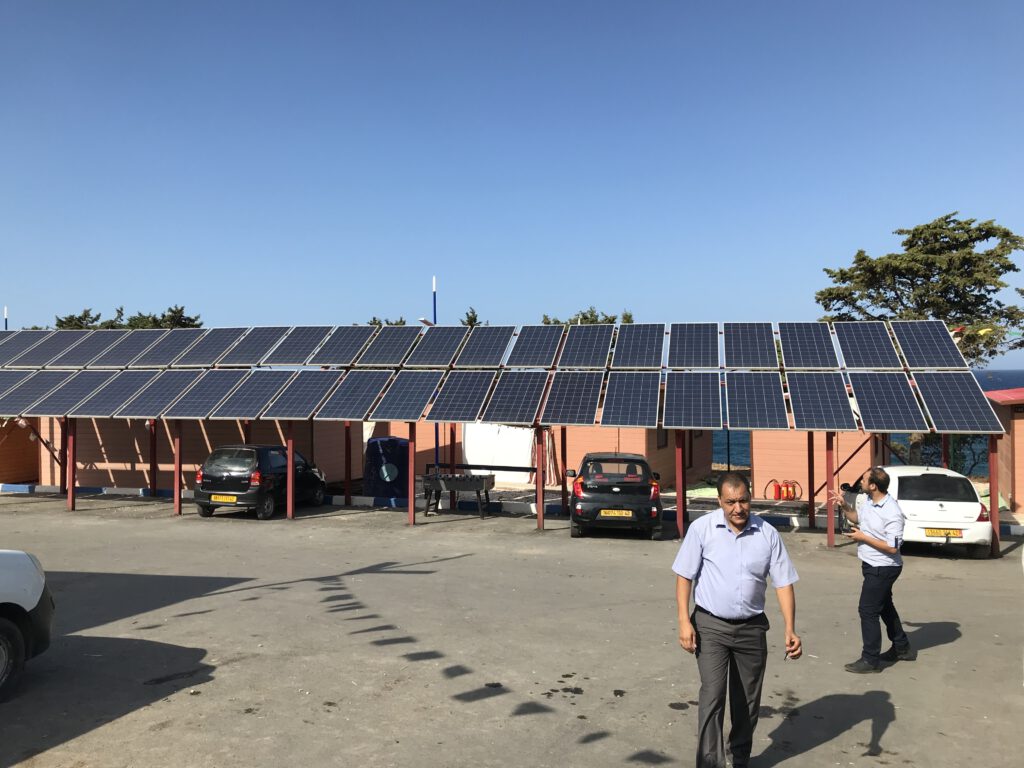
Approach and Activities
A multi-level approach strengthens the capacity of Algerian municipalities and public utilities to deliver climate-efficient services. Key activities include:
- Building technical capacities to manage and reduce energy consumption in municipalities.
- Enhancing management capacities to deliver effective and sustainable services.
- Promoting citizen engagement, with a particular focus on involving women in improving climate efficiency.
Impact and Funding
By empowering local governments and communities, the project directly benefits Algeria’s population through more efficient municipal services and reduced reliance on fossil fuels. With a budget of up to €6 million, this initiative strengthens Algeria’s path toward climate-friendly development.
Our Contribution
We played a pivotal role in designing the project proposal, aligning its objectives and methodologies with Algeria’s climate goals and international best practices.
Advancing 100% Renewable Energy in Kenya
Transforming Kenya’s Energy Sector through Innovation and Collaboration
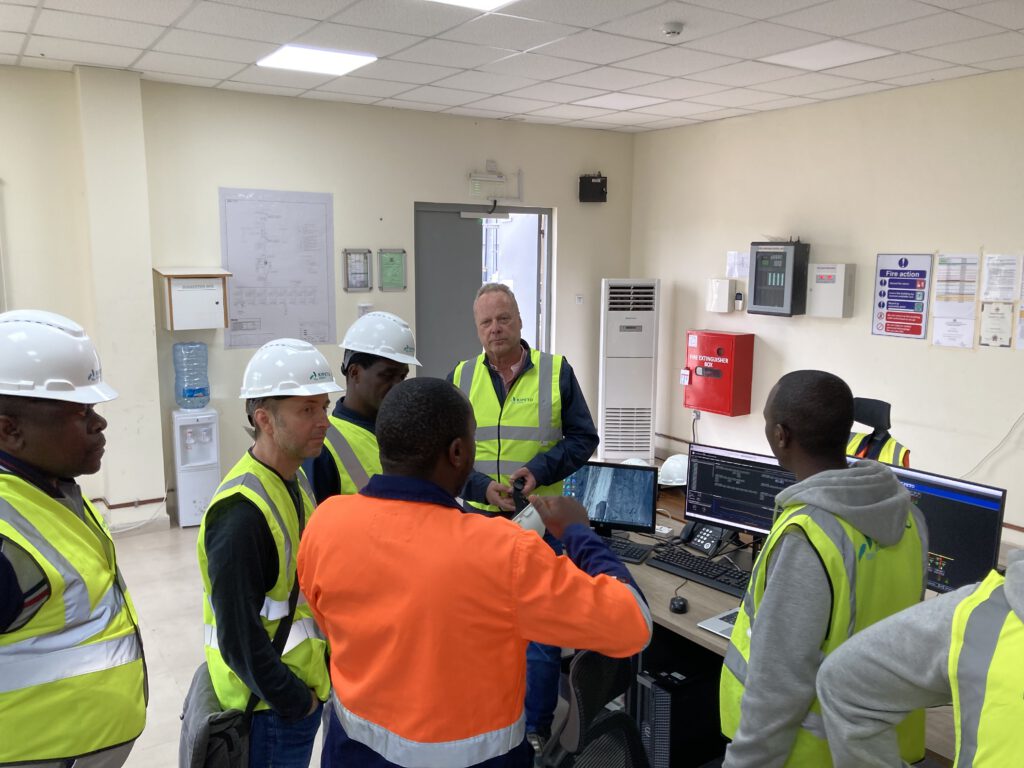
This project, for which we contributed to the proposal design, funded by the German Federal Ministry for Economic Cooperation and Development (BMZ) and implemented by GIZ, supports Kenya’s ambition to achieve 100% renewable energy. With a financial volume of €4 million, the initiative enhances administrative, regulatory, and technical capacities within Kenya’s energy sector.
Key focus areas include:
- Developing competitive procurement frameworks for solar and wind energy.
- Promoting flexible power demand to accommodate variable renewable energy generation.
- Strengthening the integration of renewable energy into the national grid.
The program directly supports Kenya’s climate goals under its Nationally Determined Contributions (NDCs) and the global Agenda 2030. By fostering economic growth, improving living conditions, and promoting environmental sustainability, this initiative makes a significant contribution to Kenya’s energy transition.
Sustainable Energy Empowering Agriculture in Rural Zambia
In collaboration with BayWa r.e., Haas IDC played a key role in implementing an innovative solar energy solution at the AKTC farm in Chisamba, Zambia. Operated by the German and Zambian Ministries of Agriculture, alongside the Golden Valley Agricultural Research Trust (GART) and private sector partners, this project exemplifies how renewable energy can transform rural economies.
Reliable Power for Agricultural Growth
The farm faced the challenge of unreliable energy access in a region without sufficient grid infrastructure. Our solution: a self-contained solar PV system paired with advanced battery storage, designed for remote and weak-grid areas. The container used for shipping the system is repurposed as a structural base and houses the batteries and control units. This ensures that nothing is wasted while delivering uninterrupted power for up to 13 hours a day.
Empowering Communities with Knowledge and Technology
The system supports essential agricultural operations such as field irrigation, significantly boosting productivity and ensuring better harvests. Beyond providing energy, the project promotes capacity building. Training sessions on wheat cultivation and technological innovations equip local farmers with the tools and knowledge they need to improve their livelihoods and sustain their operations.
A Model for Sustainable Development
This project highlights how sustainable energy solutions can empower communities by addressing local challenges, improving agricultural output, and fostering economic growth. It reflects Haas IDC’s commitment to innovative, impactful, and environmentally responsible projects that help people to help themselves.
Results That Matter
The AKTC farm now serves as a model for renewable energy applications in agriculture, showing how tailored solar solutions can make a lasting difference in rural communities while protecting the environment. This project represents a sustainable path forward, demonstrating the potential for global partnerships to drive meaningful change in emerging economies.
Pioneering Utility-Scale Solar Energy in Zambia
In collaboration with BayWa r.e., GIZ’s Project Development Programme (PDP), and Copperbelt Energy Corporation (CEC), Zambia’s largest photovoltaic plant—a 1 MW ground-mounted solar system—was successfully commissioned in 2018. This landmark project demonstrates the economic and environmental advantages of solar energy in the region, marking a significant step toward sustainable energy solutions in Southern Africa.
Haas IDC contributed as a consultant in the project’s design and implementation phases, ensuring alignment with local needs and sustainable energy strategies. The expertise provided played a key role in defining the framework for implementation and capacity-building activities.
BayWa r.e. installed and commissioned the plant within just three weeks. The project also included an extensive training program on project development, plant maintenance, and operational management. A key outcome was the development of a Renewable Energies curriculum at Copperbelt University in Kitwe, with the plant serving as a training and educational facility.
As the plant’s owner and operator, CEC is integrating solar energy into its diversified energy mix, providing reliable power while fostering local expertise in renewable energy. This initiative underscores a shared commitment to sustainable energy, community capacity building, and long-term environmental benefits.
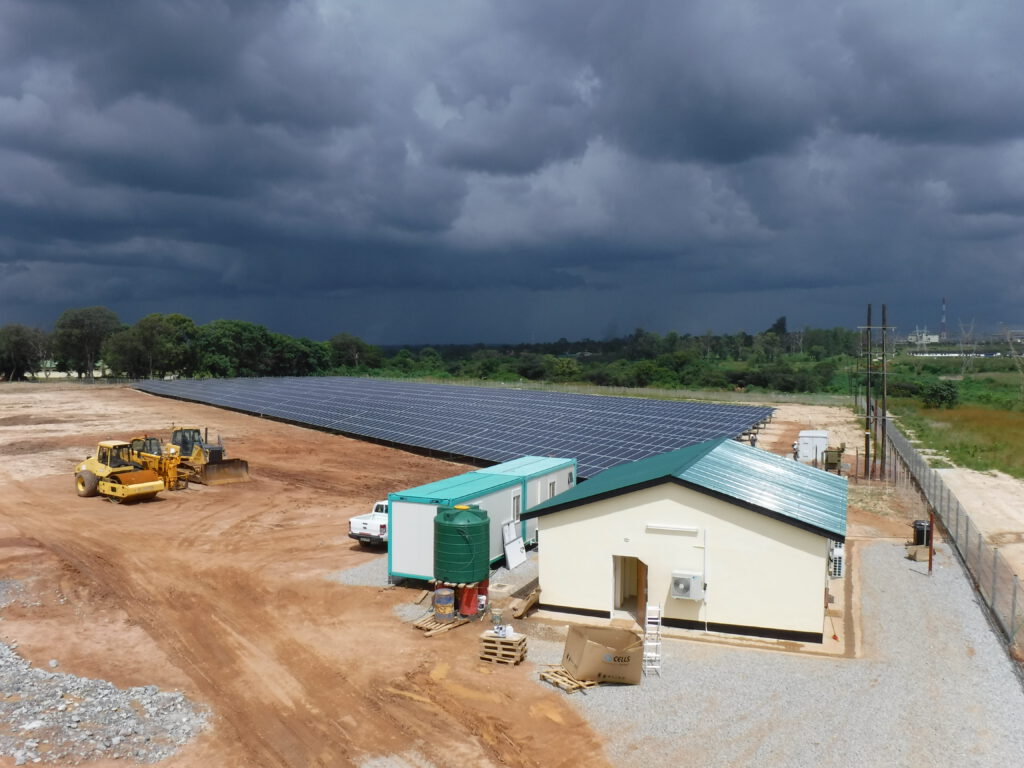
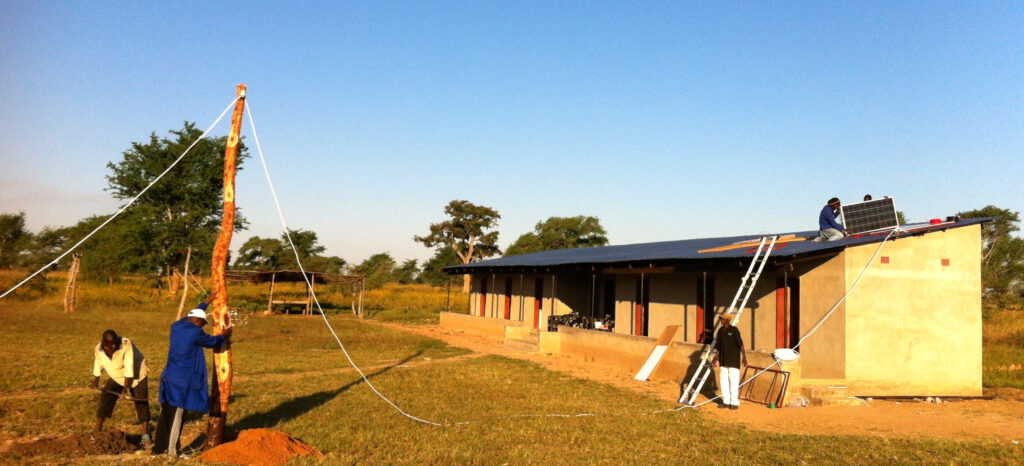
Doneka Rural Service Centers – Illuminating Underserved Rural Areas with Innovation
This pioneering initiative aimed to provide sustainable energy solutions to rural communities in Zambia. By implementing solar energy systems tailored to local needs, the project empowered residents, enhanced quality of life, and demonstrated the transformative power of renewable energy in underserved areas.
- Objective: Deliver reliable and clean energy to remote communities.
- Innovation: Customized solar energy systems for rural use.
- Impact: Improved access to electricity, reduced dependency on fossil fuels, and enhanced community development.A Model Project in Action
A Model Project in Action
Bringing Light to Learning: Solar Power at Malaikha School
In Southern Zambia, the Malaikha School for blind and low-vision children, far from the electricity grid, faced unique challenges. In 2012, a solar system was installed, transforming the school and dormitories with reliable electricity. Today, teachers use laptops to deliver quality education, empowering both children and adults with visual impairments. This solar-powered initiative has created a brighter future for a community often overlooked, proving that sustainable energy can illuminate lives in remarkable ways.

